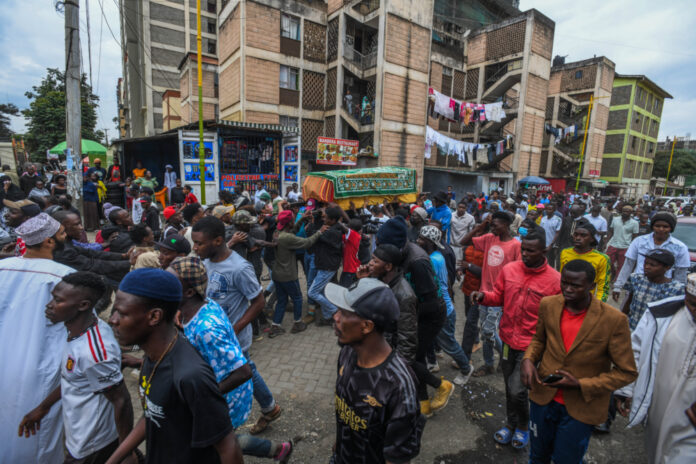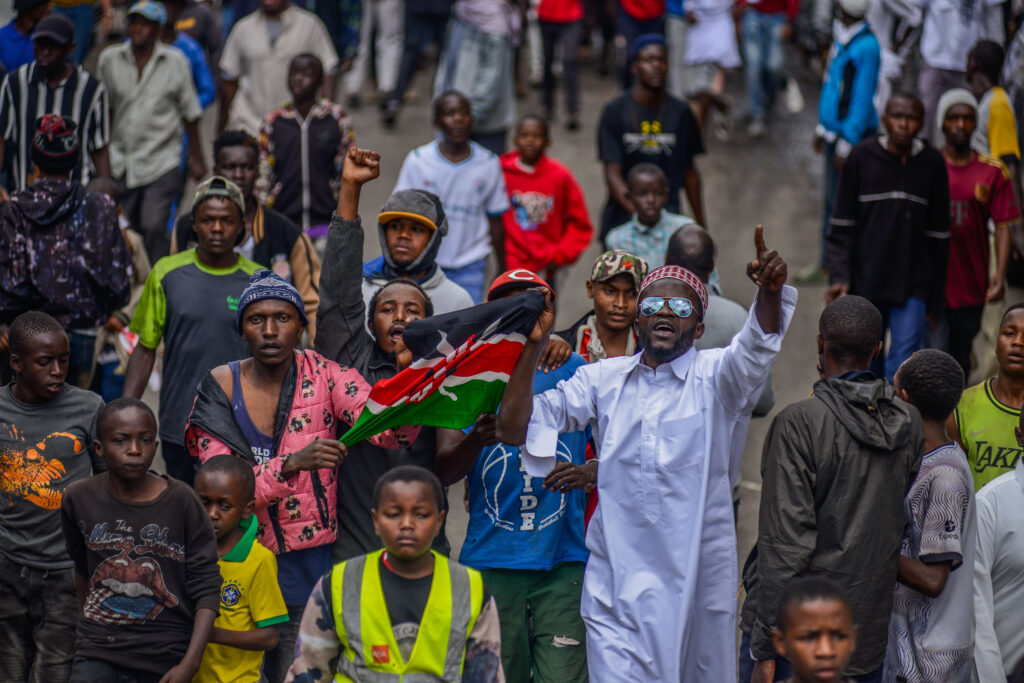
The janazah for 19-year-old Ibrahim Kamau, who was killed during a protest against tax increases, was held yesterday in Nairobi, Kenya.
Kamau was among thousands of protesters who stormed parliament while calling for legislators to vote against a finance bill that would increase taxes.
Police opened fire and several people were killed on the spot.
Hundreds carried Kamau’s casket on Friday, accompanied by prayers and chants, honouring his memory.
The death toll from the protests in Kenya has risen to 26 after The High Court of Kenya approved the use of military force to restore order following anti-tax protests that overwhelmed police.
President William Ruto bowed to public pressure on Wednesday and announced that he will not sign the controversial Finance Bill 2024, which has several tax hikes.

Subscribe to our newsletter and stay updated on the latest news and updates from around the Muslim world!
The withdrawal of controversial Finance Bill 2024, which proposed significant tax hikes, may have quelled immediate public unrest, but it has not resolved the deeper financial issues facing the Kenyan government, according to financial experts.
The bill was a cornerstone of Kenya’s agreement with the International Monetary Fund (IMF), aimed at addressing the country’s fiscal challenges.
Ruto’s plan, supported by the IMF, to sign the bill which includes tax increases aimed at raising more than $2.7 billion in revenue for the government’s ambitious Ksh 4.2 trillion ($30.6 billion) 2024 – 25 budget.
The IMF had advised the government to proceed with the Finance Bill despite anticipating public protests.
The guidance was part of a broader strategy to meet stringent conditions set by the IMF under its multi-year program with Kenya, which includes a series of tax reforms to enhance revenue collection.
That idea led to the deaths of more than 20 Kenyans, leaving dozens nursing gunshot wounds, according to finance expert Robert Gitachu.





















